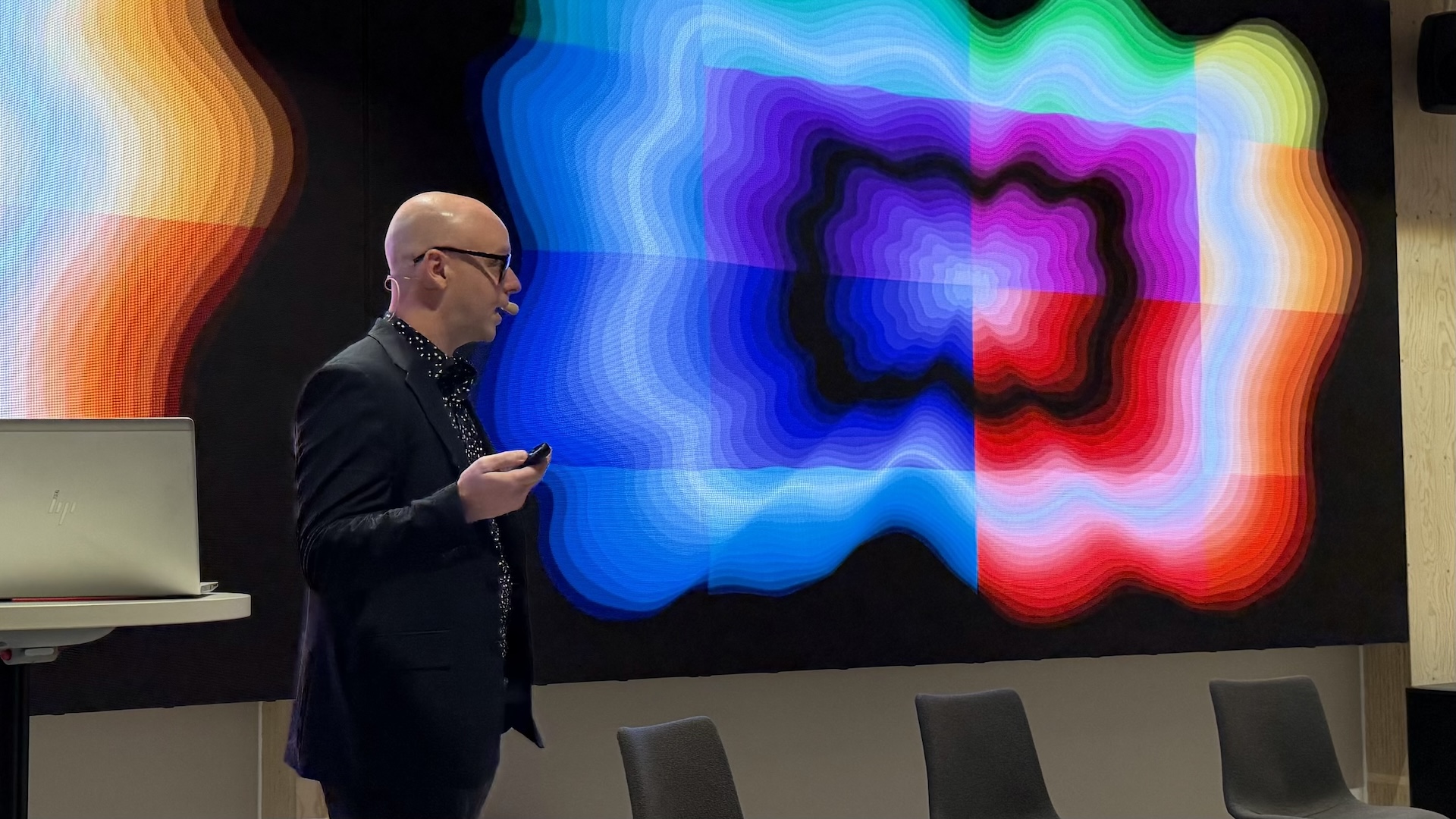The WDBE Summit kicked off in Helsinki on October 3, featuring two days of partner and community sessions, along with four compelling keynote presentations. One of the keynote speakers was Mark Bryan, Senior Foresight Manager at the Future Today Institute, bringing over 20 years of experience in commercial design. In his talk, he stressed the importance of embracing technology to drive change within the AEC industry.
The tech supercycle
Mark identified three major inventions transforming the field: Artificial Intelligence (AI), Connected Devices, and Biotechnology. Together, they form a supercycle that reshapes the very fabric of our existence.
AI
AI is revolutionizing the industry by automating planning processes and enhancing urban design. With AI’s growing influence, companies must rethink their project management practices and client interactions. Leveraging AI can streamline operations and enable firms to offer more personalized services tailored to their clients’ evolving needs.
While many are concerned about how AI might impact service pricing, Mark offered a different perspective:
“The opportunity here, though, is to rethink our pricing structures, not necessarily to undercut fees, but to think about what does it mean to have an AI fee joined with a human experience fee. This way, we can benefit from both without just reducing our project fees.”
Connectables
The second technology involves “Connectables”—devices equipped with sensors that gather data to create responsive environments tailored to user needs. While these technologies offer vast opportunities, they also bring up questions about data ownership and privacy. As clients seek to monetize this data, companies need to establish clear policies that protect their interests and foster trust.
Biotechnology
Biotechnology is the third technology, encompassing innovations like self-healing materials and bio-based construction solutions. These developments have the potential to revolutionize the construction industry. However, the industry must be proactive in determining how to use these materials effectively. Collaborating with regulators and educational institutions will be essential to equip workers with the necessary skills for this new technological frontier.
Competitive strategies
According to Mark, organizations must develop robust technology governance policies, particularly regarding AI and data. Staying competitive in this evolving landscape also requires upskilling the workforce and partnering with educational institutions to prepare the next generation for AI, data integration, and biotechnology.
Mark also encouraged companies to rethink their business models, explore data monetization, offer predictive services, and adopt new pricing models. He stressed the importance of partnerships:
“And then I highly recommend partnerships, because we know we all don’t have the capital to do all of these things right now, but we can start in incremental fashion by finding the right partners to help us get there.”
Foresight beyond three years
Mark emphasized the importance of incorporating foresight into growth strategies, extending beyond the usual three-year planning cycles. Companies that prioritize foresight will be well-positioned to turn challenges into opportunities for innovation and growth.
Embracing foresight is key to unlocking a successful future.
For those interested in exploring technology trends further, the Future Today Institute’s 2024 Tech Trend Report is available for download on their website.
View the original article and our Inspiration here


Leave a Reply